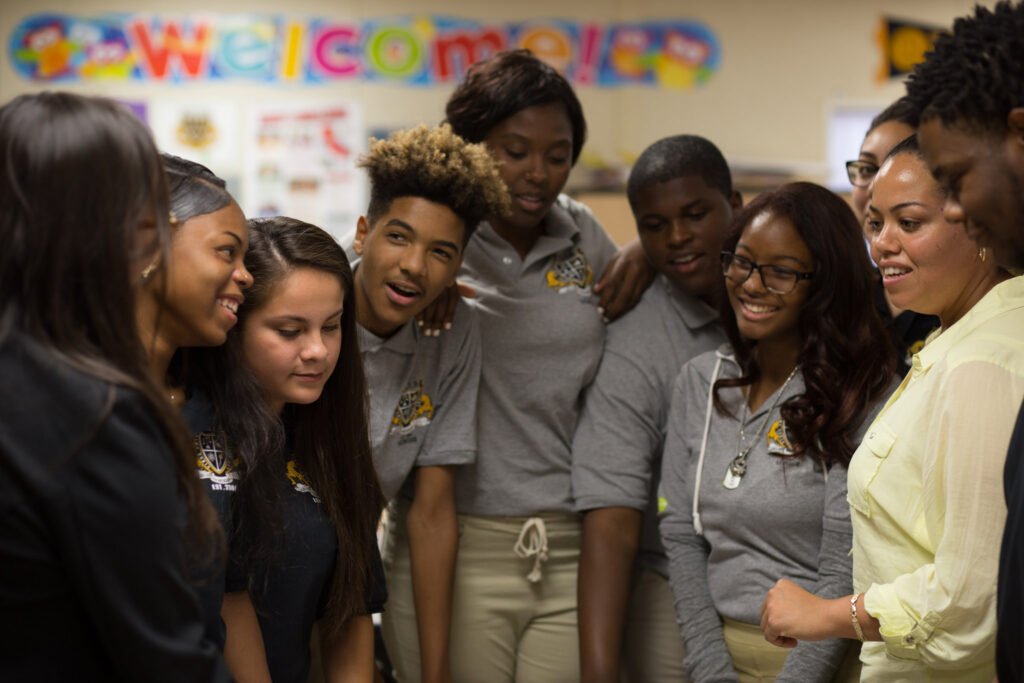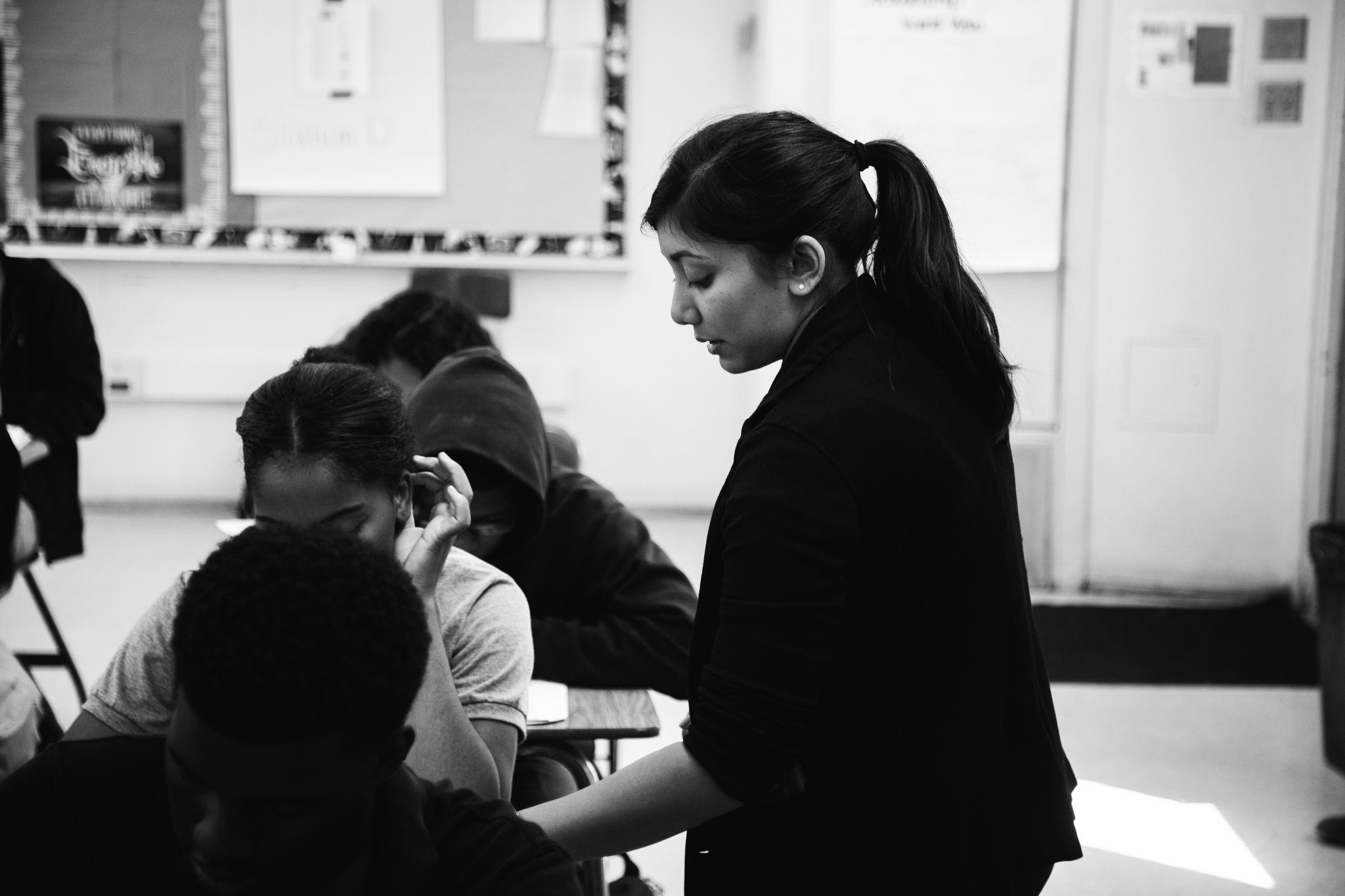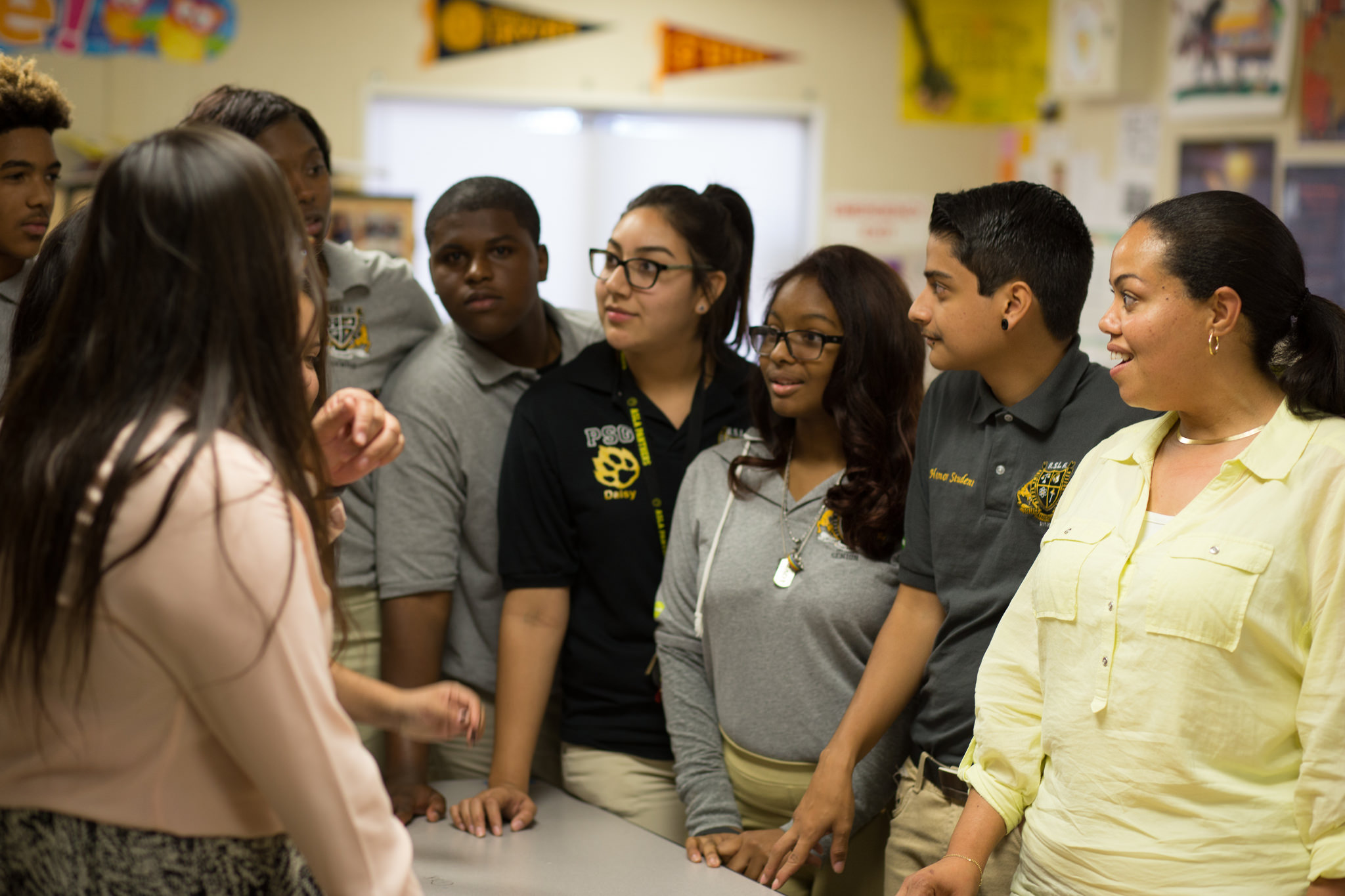Fostering Safe Communities Through Restorative Justice Practices

By: Taylor Ellis, Administrator in Residence at Green Dot Public Schools
For far too long, and far too often, harsh discipline has been the de facto way schools have tried to maintain a safe environment. Thankfully, this is changing. Studies are showing–and school leaders are increasingly recognizing–that these punitive measures, such as detention, suspension, or even expulsion, do little more than take students out of their learning environment, and do nothing to teach them the skills and strategies that will help to change their behavior. Green Dot believes that Restorative Justice practices are the solution.
The logic behind this new way of approaching discipline is simple: removing students from the learning environment in order to issue consequences for negative behavior does not teach what to do when confronted with difficult choices, conflicts, or emotions, and instead, often results in future disciplinary action. As education journalist Katherine Lewis reported,
“Consequences have consequences. Contemporary psychological studies suggest that, far from resolving children’s behavior problems, these standard disciplinary methods often exacerbate them. They sacrifice long-term goals (student behavior improving for good) for short-term gain—momentary peace in the classroom” (Lewis, 2015).

This change in perspective is leading more and more schools to rethink suspensions and to look for alternative strategies, such as Restorative Justice practices, to address undesired student behavior. The Restorative Justice approach focuses on teaching students to resolve conflict, heal harm, and make more positive decisions. Restorative Justice emphasizes values of empathy, respect, honesty, acceptance, responsibility, and accountability to students.
Restorative Justice and Community Circles
As part of Green Dot Public Schools‘ efforts to address barriers to learning and provide a safe and supportive learning environment for all students, several campuses have partnered with the California Conference for Equality and Justice (CCEJ) to implement the Restorative Justice practice of Community Circles as a way to meet student needs and build community.
Community Circle is a strategy that uses a structured framework to help students and teachers build relationships and address conflict within a classroom or school community. A facilitator leads a structured discussion, during which participants get to share without interruption while others listen respectfully and nonjudgmentally. Participants may express themselves in any way that is comfortable for them and often includes a story or personal experience. Everyone gets an opportunity to speak, but no one is required to speak during the Community Circle, and may pass if they wish.

Through these Circles students develop a strong sense of community and develop strategies for positive behavior, such as empathy, respect, honesty, acceptance, responsibility, and accountability. Additionally, Circles offer an opportunity to address harm when it has occurred in the broader community and work to repair the harm and heal the community through open dialogue and personal ownership.
Our partnership with CCEJ and the implementation of Community Circles are just two of the ways Green Dot Public Schools are working to prepare all students for college, leadership, and life–by giving students the social-emotional skills necessary for success. Socio-emotional skills like these are among the most logical, simple, and effective for students.

